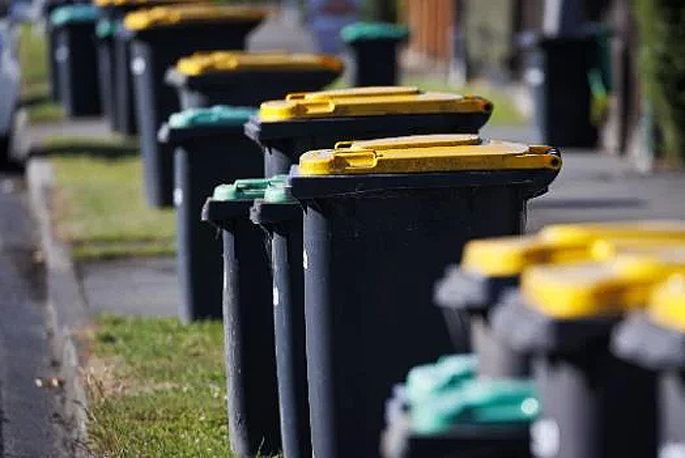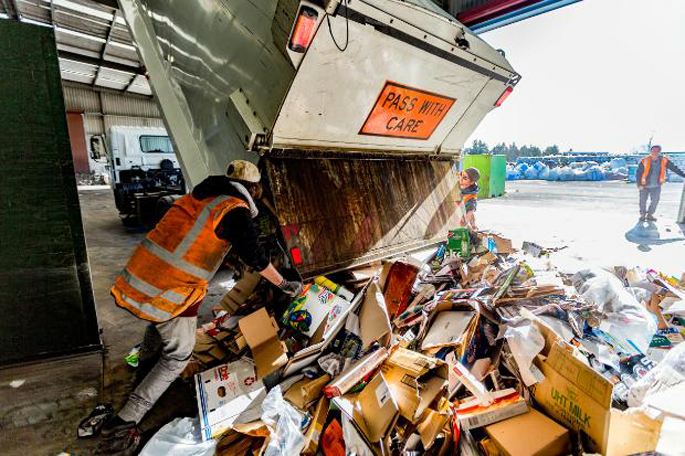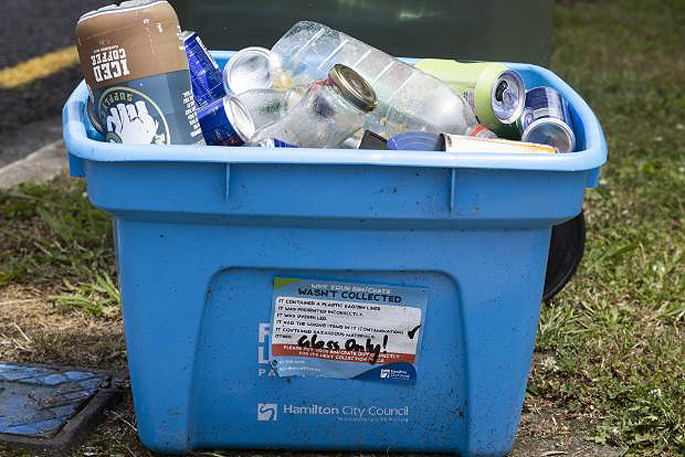How waste is recycled is about to undergo significant change with a new standardised recycling programme set to be implemented across the country from February 1.
Starting on Wednesday, kerbside recycling collections will have national standards applied, meaning there will be certain things that can no longer be recycled.
This will be the first time materials collected from households for recycling will be the same across New Zealand.
Previously, councils set their own rules around recycling and what materials could and couldn’t be recycled.
The Government says the new recycling system will help increase the quality and quantity of materials collected for recycling, and reduce the amount of recycling and food scraps sent to landfill.
New Zealand produces more than 17 million tonnes of waste each year, and of that, 13 million tonnes goes to landfill.
That is 76 per cent of all waste.
The Government’s aim is by 2030 to have at least 50 per cent of household waste go into recycling and food scrap bins instead of ending up at the tip.
So what exactly is changing and what do you need to know?
Only these materials will be collected
From February 1, only certain materials will be allowed in your kerbside recycling and will be collected. These will be glass bottles and jars, paper and cardboard, plastic bottles, trays and containers (grades 1, 2, and 5), and aluminium and steel tins and cans.
Some items now excluded from being collected
The new changes mean some items will no longer be collected in the recycling. Items less than 50mm such as caps are out the door, while aerosol cans and things such as juice boxes and beverage cartons will no longer be allowed in your recycling.
Aluminium foil trays are a no, no, while all lids will now be banned from being recycled. Plastics (grades 3, 4, 6 and 7), and all items over 4 litres are also no longer recyclable.
 Yellow recycling bins wait to be emptied. Photo: Alden Williams/The Press.
Yellow recycling bins wait to be emptied. Photo: Alden Williams/The Press.
Food scrap collections to be rolled out to more areas
Having been rolled out in places like Auckland in 2023, food scrap collections are set to be rolled out to more urban areas, starting in 2024.
All households in urban areas will have this service in place by 2030, while places where food processing facilities are already available will see food scrap collections by 2027.
What do the plastic recycling numbers mean?
The plastic numbering system helps to determine what we can and cannot recycle. All plastic products come with a number indicating what type of plastic it is.
If a plastic has the number 1, 2, or 5 then it is deemed to be a high-value plastic that can be easily recycled. However, if it contains the number 3, 4, 6, or 7 it is of lower value and harder to recycle.
 A recycling sorting station in Blenheim. Photo: Ricky Wilson/Stuff.
A recycling sorting station in Blenheim. Photo: Ricky Wilson/Stuff.
Before you recycle, remember to…
Before you put out your recycling it is important to remember you need to do a few new things with the changes coming in. Always empty and rinse all recyclables before putting them out; take lids off all bottles and containers, these go in the rubbish; and remove bubble wrap and any other plastic packaging.
A reminder that these items cannot be placed in your recycling
It is still important to remember the things that can’t be put out for recycling. These are items that were already banned and remain so under the new standardised programme.
Never bag your recycling, while clothing, as well as nappy and sanitary waste are not to be put in your kerbside collection.
Things such as medical waste (face masks), garden waste, cookware, light bulbs, drinking glasses, electrical items, gas bottles and batteries remain on the non-recyclable list.
What if I am unsure about the changes and what to include?
Each council website has a section on the changes and recycling collections in general, while the Ministry for the Environment also has plenty of information online.



0 comments
Leave a Comment
You must be logged in to make a comment.